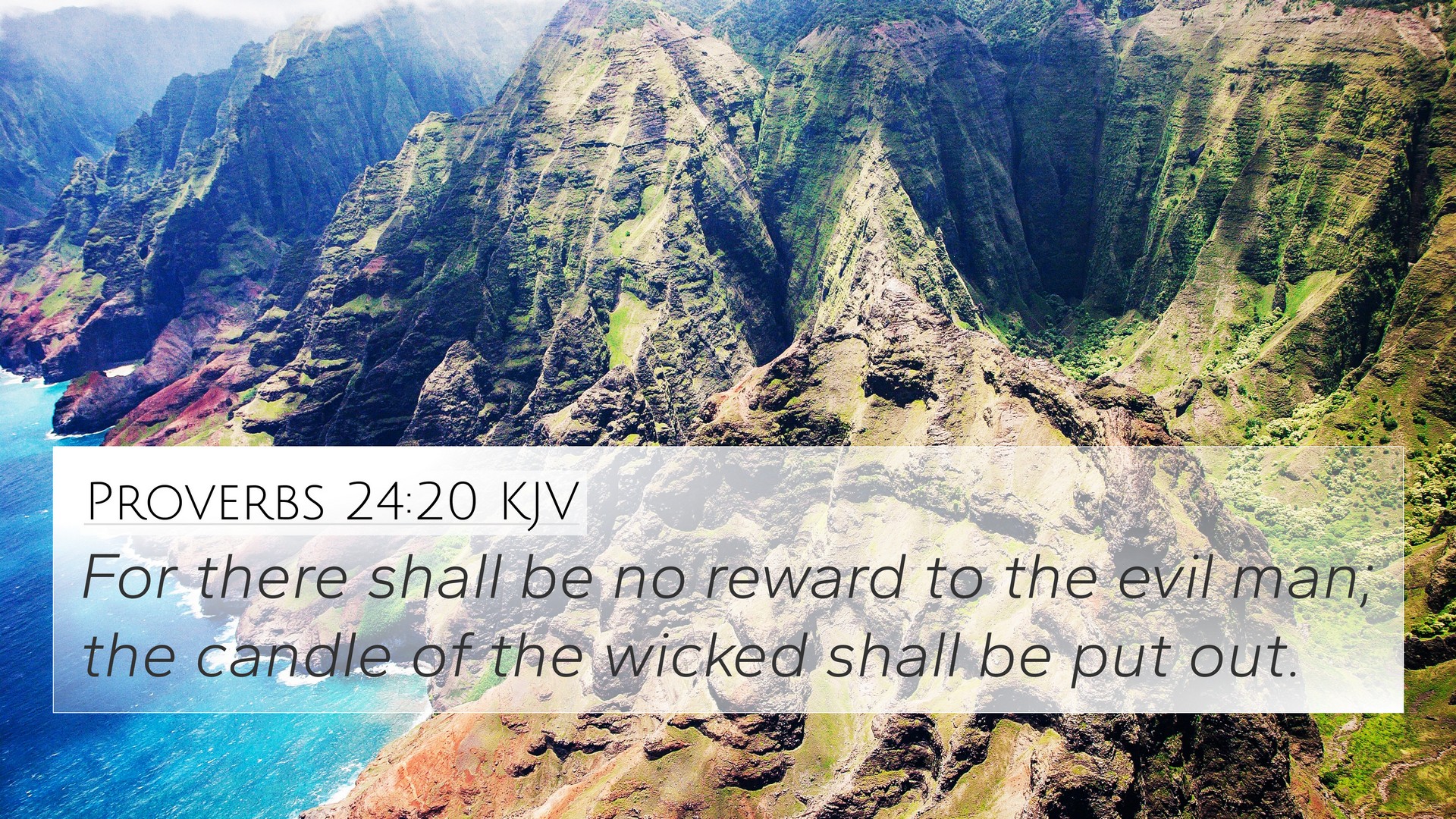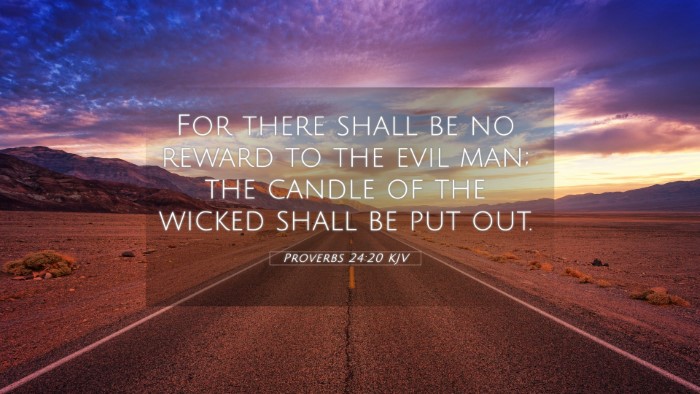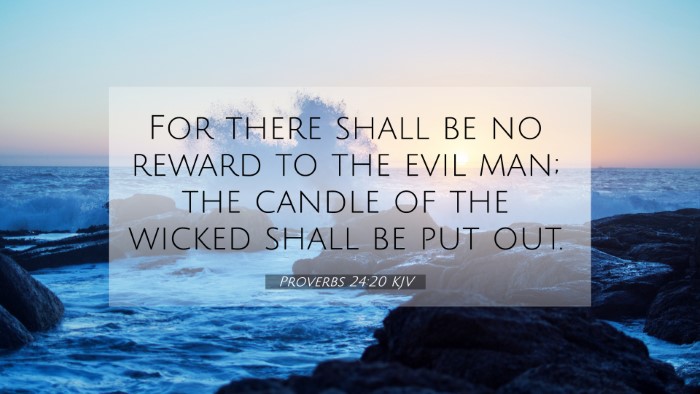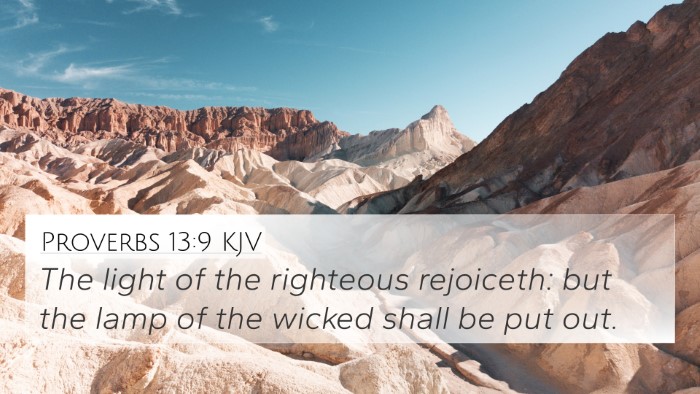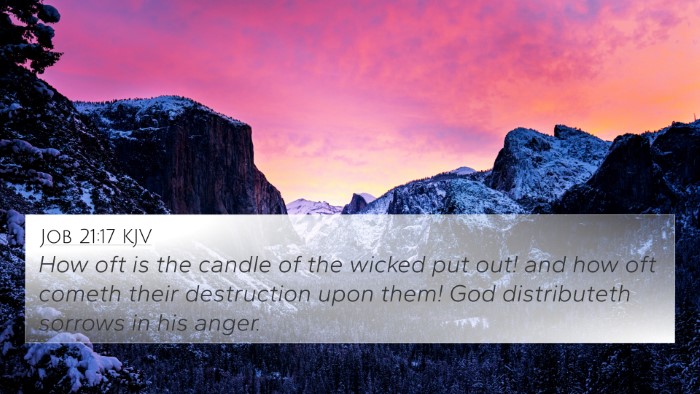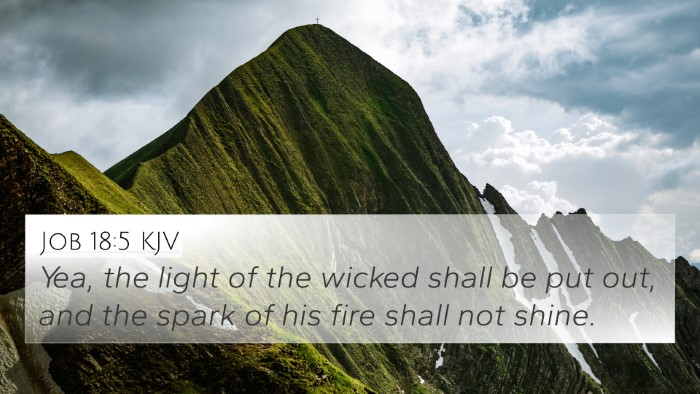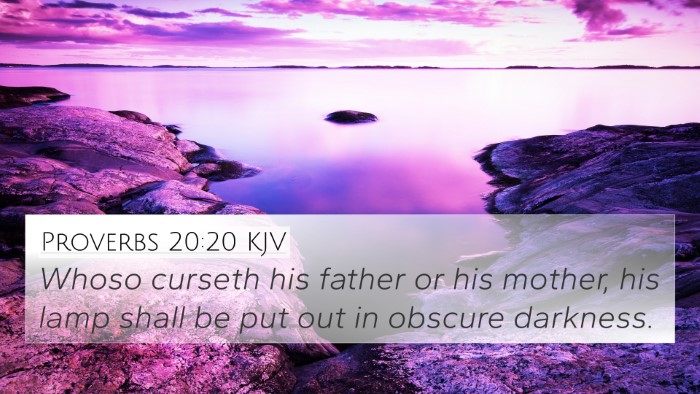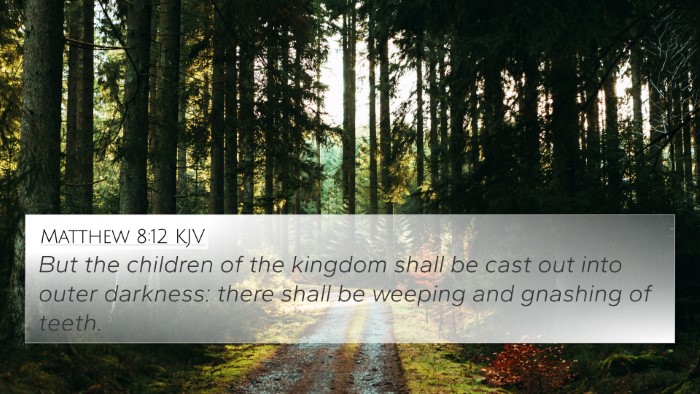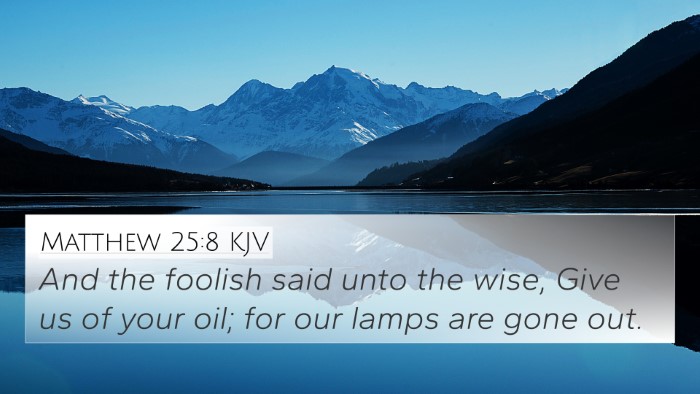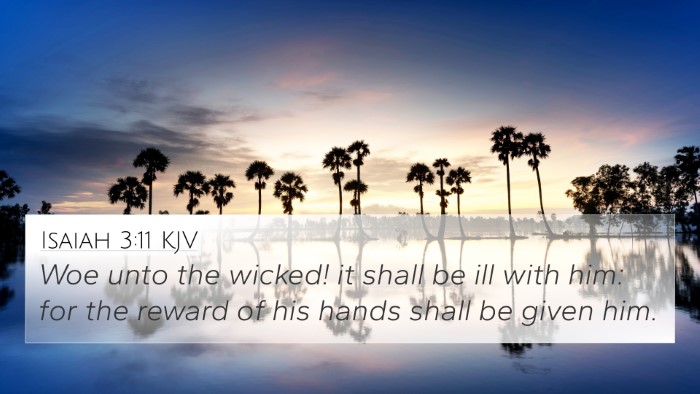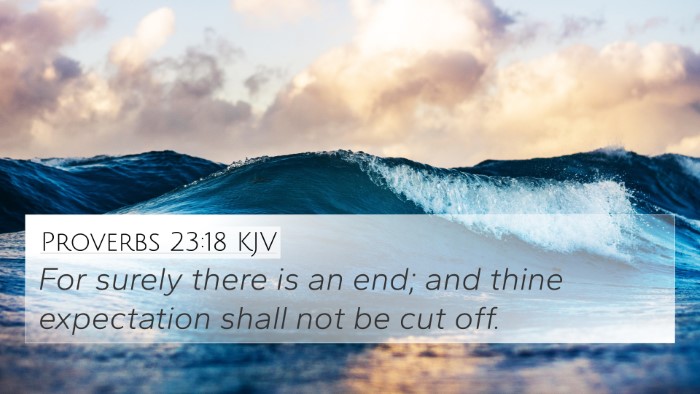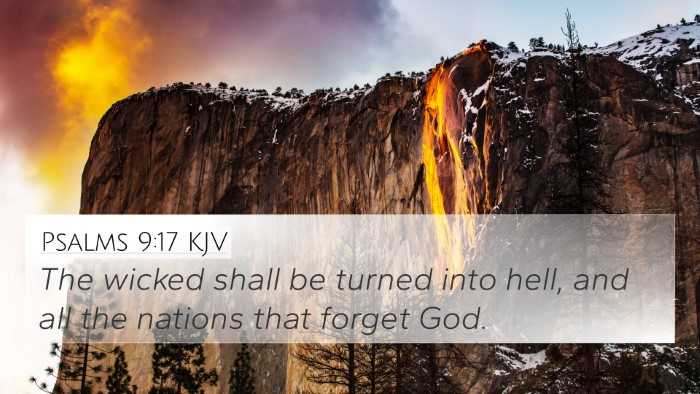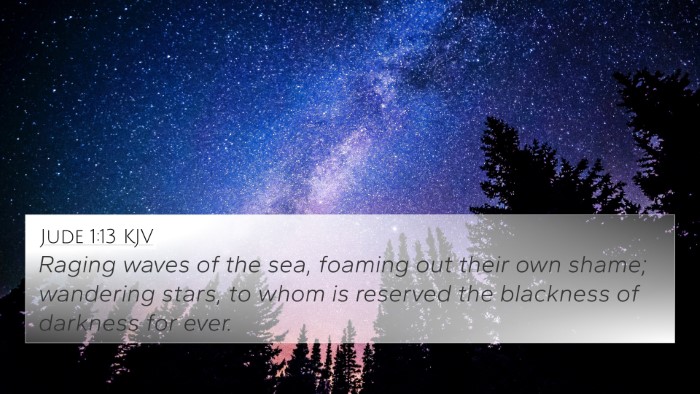Understanding Proverbs 24:20
Proverbs 24:20 states: "For there shall be no reward to the evil man; the candle of the wicked shall be put out." This verse conveys a profound truth regarding the fate of the wicked and the ultimate justice of God. Below we will explore the meaning of this verse using insights from various public domain commentaries while also providing cross-references to other relevant Bible verses.
Summary of Proverbs 24:20 Meaning
In this exhortation from Proverbs, the wise author seeks to highlight the distinction between the righteous and the wicked. The verse serves several key purposes:
-
Consequences of Evil:
The verse emphasizes that there will be no lasting reward for the wicked, reflecting the moral order instituted by God. The consequences of evil deeds are significant, evidently leading to punishment rather than prosperity.
-
Temporary Nature of Wickedness:
Just as a candle burns bright for a time before being extinguished, so too is the success of the wicked momentary. The imagery implies that their triumphs are fleeting and will eventually lead to their downfall.
-
Divine Justice:
God’s justice ensures that those who engage in wickedness will face the inevitable consequence of their actions. This gives hope to the righteous, knowing that the Lord will uphold justice.
Commentary Insights
Here we will summarize insights from notable biblical commentators:
-
Matthew Henry:
Henry explains that the "evil man" represents those whose intentions are corrupt and whose actions are unjust. The verse serves as a warning to both the wicked and the righteous about the transient nature of sin’s pleasures.
-
Albert Barnes:
Barnes notes that the "candle" metaphor illustrates the illumination and apparent vigor with which the wicked may live. However, this will come to an abrupt end, denoting the certainty of divine retribution.
-
Adam Clarke:
Clarke highlights that the verse illustrates the assurance of justice in God’s plan. He also stresses that the absence of reward for the wicked reassures the faithful of God’s fidelity to righteousness.
Cross-References to Proverbs 24:20
This verse can be connected with several other passages throughout the Bible, creating inter-Biblical dialogue and reinforcing its message:
-
Job 31:3: "Is not destruction to the wicked, and strange punishment to the workers of iniquity?"
-
Psalm 37:20: "But the wicked shall perish, and the enemies of the LORD shall be as the fat of lambs: they shall consume; into smoke shall they consume away."
-
Proverbs 11:21: "Though hand join in hand, the wicked shall not be unpunished: but the seed of the righteous shall be delivered."
-
Isaiah 3:11: "Woe unto the wicked! It shall be ill with him: for the reward of his hands shall be given him."
-
Matthew 6:23: "But if thine eye be evil, thy whole body shall be full of darkness. If therefore the light that is in thee be darkness, how great is that darkness!"
-
Galatians 6:7: "Be not deceived; God is not mocked: for whatsoever a man soweth, that shall he also reap."
-
Romans 2:6: "Who will render to every man according to his deeds."
-
2 Thessalonians 1:6: "Seeing it is a righteous thing with God to recompense tribulation to them that trouble you."
Thematic Connections
The message in Proverbs 24:20 aligns with various biblical themes, resonating throughout scripture.
- The Theme of Justice: Numerous verses discuss divine justice, confirming that the wicked will face the consequences of their actions.
- The Theme of Righteousness vs. Wickedness: The recurring contrast between the righteous and the wicked is a fundamental theme throughout the Bible.
- The Theme of Hope for the Righteous: This verse reassures the faithful about the eventual downfall of the wicked and the endurance of the righteous.
Conclusion
Proverbs 24:20 serves as a significant reminder of the futility of evil and God's unwavering justice. By exploring this verse through commentaries and cross-references, we gain a deeper understanding of its implications and the overarching themes it presents within scripture.
